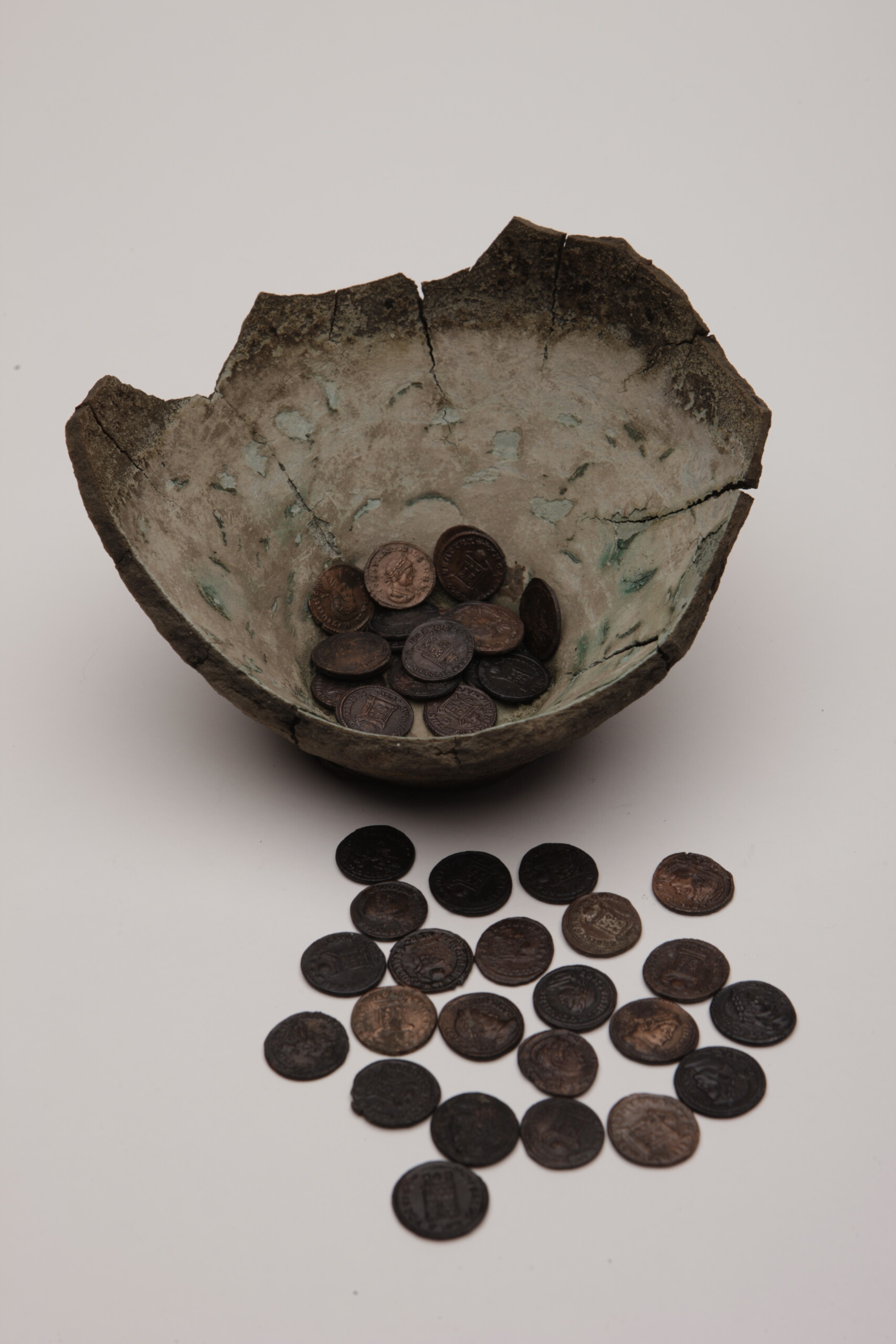
in 中文-粵語 / 粤语 / 廣東話 / 广东话 / Yue Chinese / Cantonese translated by Deborah Ng
This object has been translated into 7 different languages by 7 different users
哩堆連壺一齊發現嘅羅馬銅錢係由打比郡洞穴探險同好會嘅成員發現。本來佢地因安全理由而阻塞艾特利邊崖村裡一個礦穴,期間發掘哩組文物。啲銅錢係喺後羅馬帝國時期(即公元三百一十七至三百三十三年之間),以銅鐵製成。
你喺戶外搵到最正嘅野係咩呢?
It was the most challenging to translate Alderley Edge into Cantonese Chinese because there isn’t an official or popularised translation available (at least there wasn’t a Chinese Wikipedia article about it).
Since the first part of the village name “Alderley” sounds like an Anglolised name, I decided to approach it via phonological translation, which takes the sound of the word to be recreated in the target language as close as possible. The result is “ 艾特利”, which in fairness may not be the best result since I never heard locals’ pronunciation of the name yet. This is the same approach used for translating the Cantonese word for Derby “打比” - which, on an interesting note, it is written differently to the Mandarin variation of the translation “德比” due to difference in dialects. It is very common to see Cantonese and Mandarin translations to differ, which is best seen from literature and movies translations. Depending on the dialectical and political region, there may have different approach to the translation no matter how close their dialect may sound like (eg movies released in the Mainland China have different translations to the releases in Taiwan.)
Here comes the challenging part - I strongly considered discarding the “Edge” bit from my translation because the outcome 艾特利 is already a memorable name, but then I found out that the edge is a landscape attraction to the village. Having it included in the village name probably implies its role in the village’s local identity. I don’t want to strip that away from my translation so I decided to retain it. Apparently the Edge is an escarpment, which is translated as 斷崖 in Chinese. But that doesn’t sound very nice so I used a softer word 邊 to represent the idea of the border and the edge, to replace the word 斷 which has a meaning of break and broken. Chinese naming of a place values how nice it sounds especially with prestigious and foreign places because folk practices value the impact of environments to fortune (like ideas of Feng Shui). However there are rare exceptions that can sound pretty vulgar.
Report License: CC Attribution - Creative Commons Learn moreDo you have something you’d like to say, in your own language or English, about the object or translation? We’d like to hear what you think.
Translations are community-sourced and for anyone to participate in, however you use your language. For more information, see Community Guidelines.
Notifications
Write a Reply or Comment